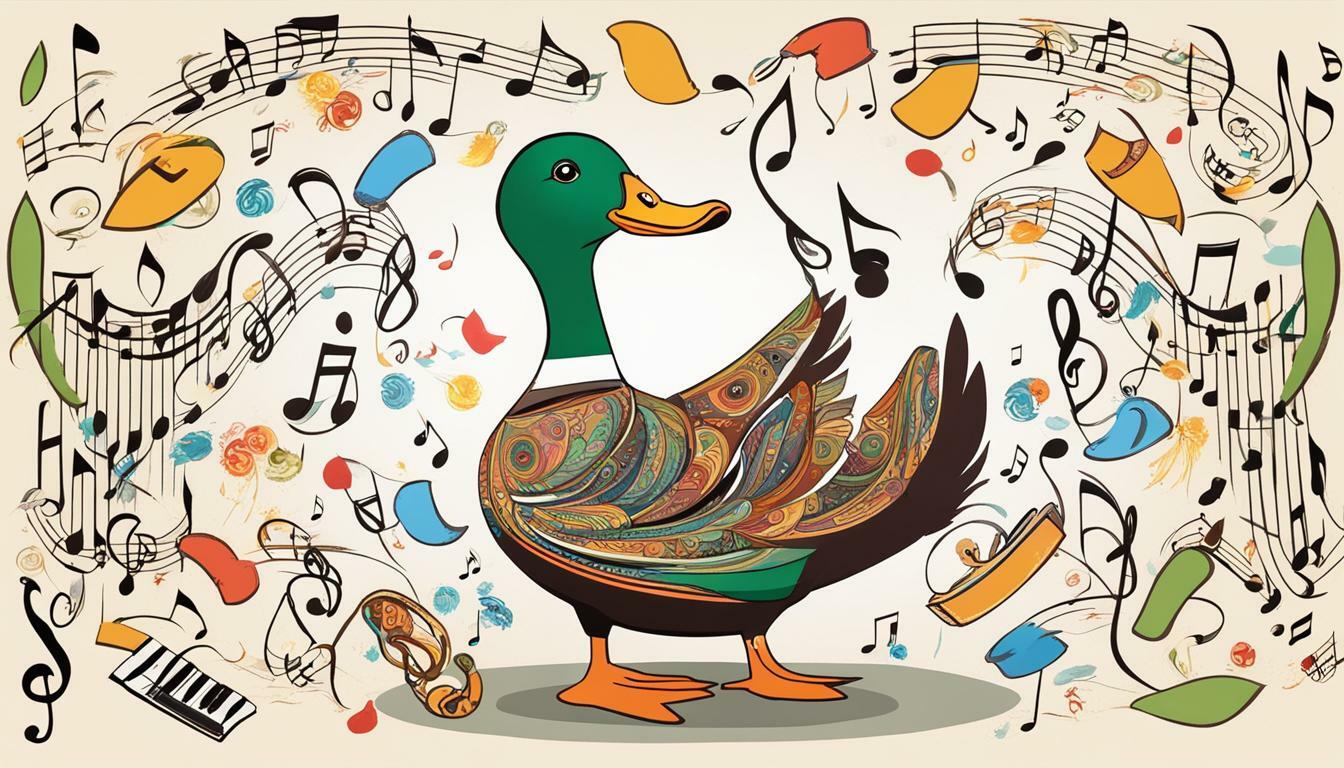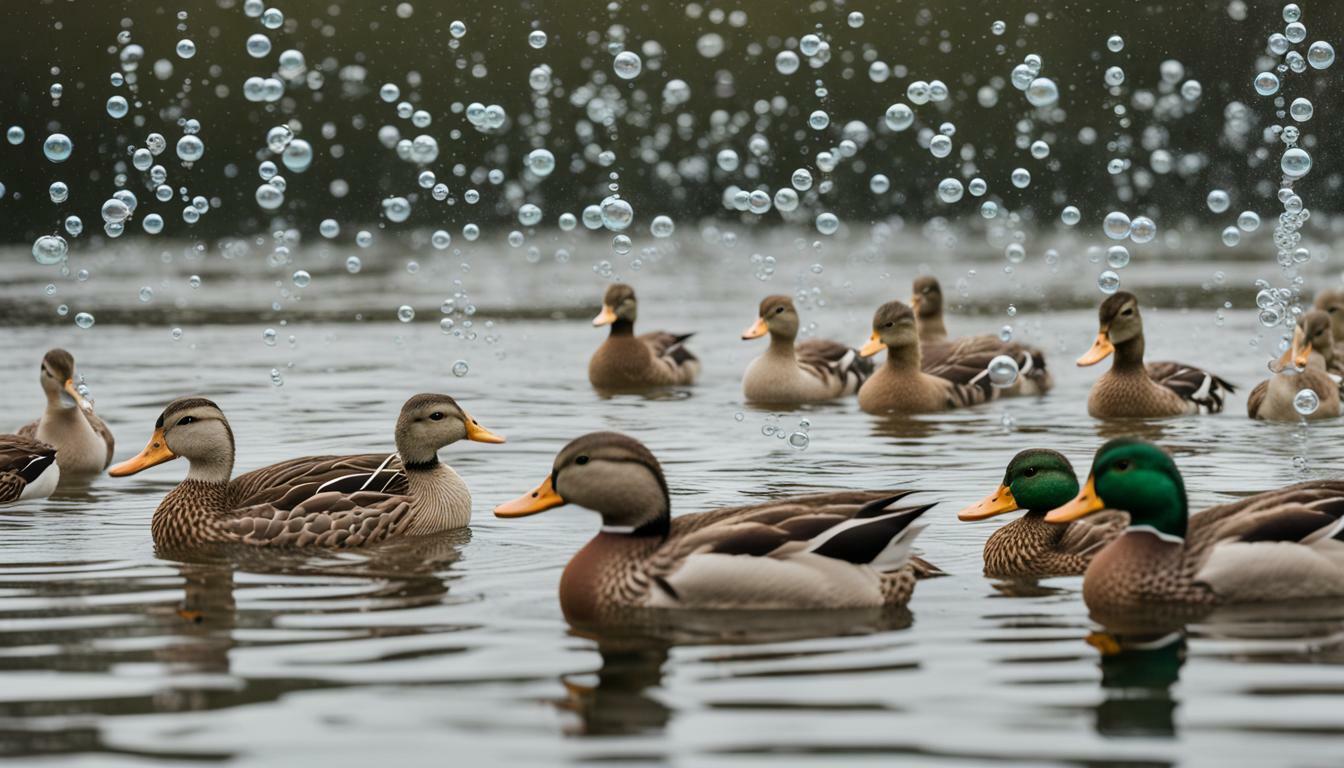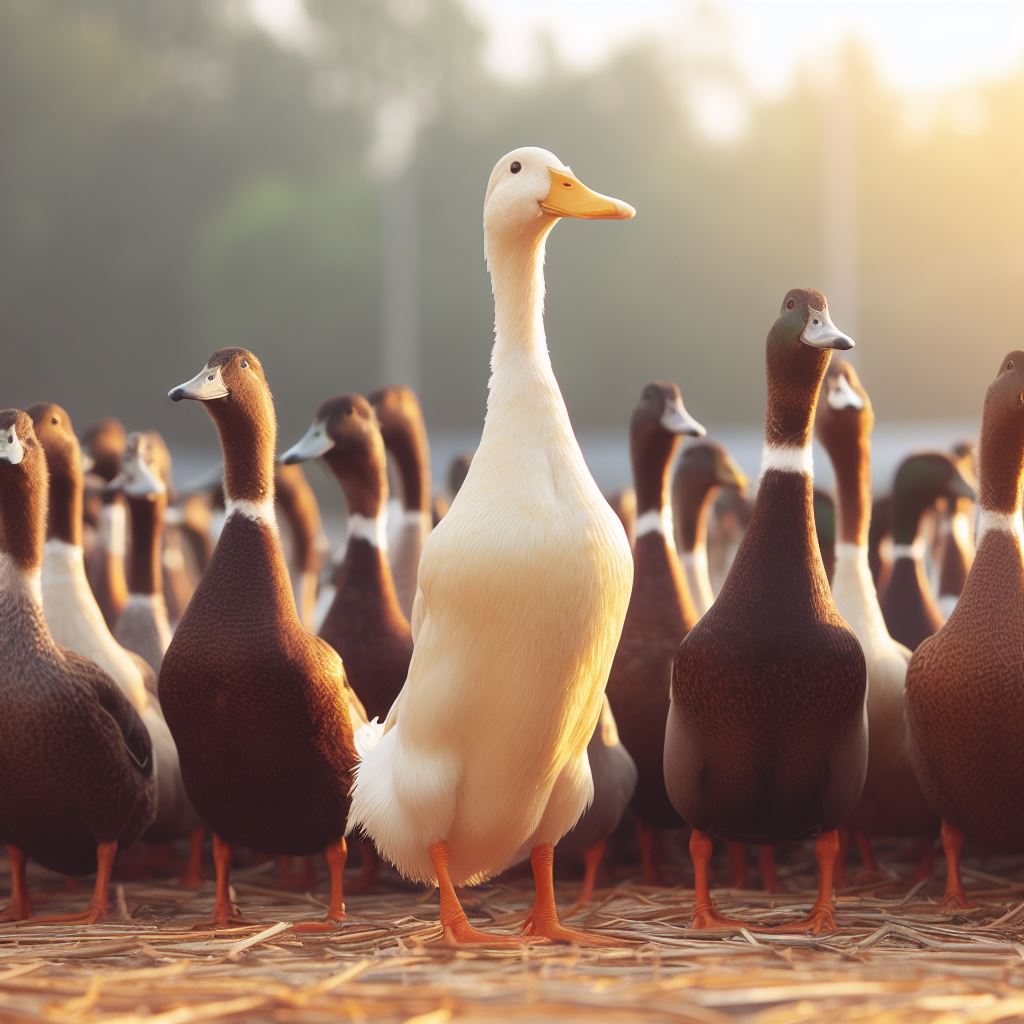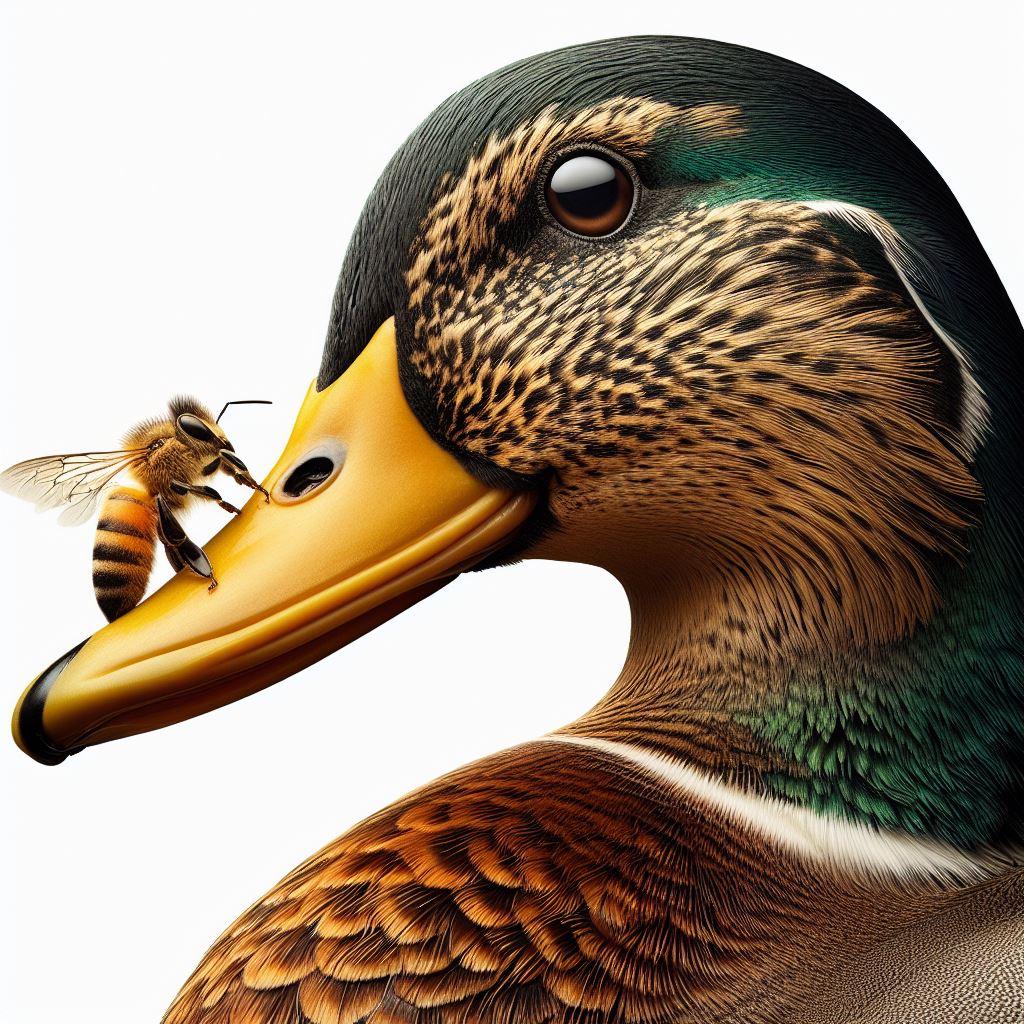Do Ducks Like Music? Uncovering the Truth Behind the Quack

Table of content:
Music is a huge part of human life. We listen to it for entertainment, to set a mood, and even to influence our emotions. But what about animals? Do they appreciate music the way we do? Specifically, do ducks like music?
This question has fascinated both scientists and duck owners alike. Ducks make all sorts of vocalizations, from soft murmurs to loud quacks. It stands to reason that they may have an ear for music too.
Overview of Duck Hearing
Before we get into ducks and music, it helps to understand how well ducks can hear. Ducks have excellent hearing compared to many other animals. This allows them to detect predators, find food, and communicate effectively.
Ducks can hear frequencies ranging from 187 Hz to 12,400 Hz. For comparison, humans hear from 64 Hz to 23,000 Hz. So duck hearing covers a wide range, but peaks in the lower frequencies.
Male ducks in particular have very acute hearing. It allows them to pick up the soft, high-pitched calls of female ducks. Mother ducks are also able to zone in on the peeping of their ducklings.
Ducks lack outer ear flap structures that would otherwise funnel sound. But they make up for it with strong auditory brain wiring. Their brains devote considerable resources to processing noises relevant to survival.
Sounds Ducks Make and Why
Ducks have complex vocal abilities. Captive ducks make over 20 distinct sounds. Wild ducks likely have an even wider vocal repertoire. Their calls serve a variety of functions.
Mother ducks use soft, high-pitched whistling to attract ducklings. The ducklings chirp in return, allowing moms to monitor their location. Mother ducks may also vocalize to synchronize hatching.
Male ducks make loud, raspy calls that advertise their presence. Loud quacking helps males attract females during breeding season. It also establishes a male duck’s dominance in the flock.
Ducks make alarm calls consisting of fast quacks upon sighting a predator. The alarm spreads quickly, alerting the flock to danger. Ducks make aggressive hissing noises to deter predators as well.
Quiet murmuring occurs as ducks forage together in a group. This helps maintain flock cohesion. Ducks stabilize flock flight through repetitive quiet calling as well.
Nesting calls enable a female duck to signal her location after hiding away to lay eggs. Calls made by ducklings also imprint upon the mother duck. This facilitates parent-offspring bonding.
Do duck hunting calls actually attract wild ducks? These calls mimic duck vocalizations to lure them in. But some argue they only confuse real ducks. The topic remains hotly debated among hunters.
Do Ducks React to Human Music?
Many duck owners report playing music for their ducks. But do ducks actually respond to or enjoy music made for humans?
Scientific research on this topic is fairly limited. However, some small studies provide insight.
Classical Music Study
In one study, young Pekin ducks were exposed to classical music composed by Bach, Beethoven, or Mozart. The music was played for 2 hours in the morning over the course of several weeks.
Ducks exposed to music displayed more positive social behaviors like preening, foraging together, and huddling than ducks housed in silence. When startled by loud noises, music-exposed ducks also appeared slightly less stressed.
However, the classical music had no effect on duck growth, egg production, or overall energy levels.
Analysis
Together, these studies suggest music impacts duck behavior and mood. Loud, chaotic music seems to stress ducks. But calmer classical music may have subtle enriching effects.
More research is still needed. But it appears a duck’s musical preferences align more with our concept of pleasant, harmonious sounds.
Can Music Help Relax Ducks?
Some duck owners report that certain types of music appear to have relaxing or soothing effects on their ducks. Is there any truth to this?
We have limited scientific evidence. But the classical music study provides a clue. The ducks exposed to Bach, Mozart, and Beethoven displayed lower stress when faced with alarming noises.
Tranquil, consonant music may mimic the repetitive, rhythmic communication ducks use to signal comfort and safety in a flock. The lower frequencies and tempos could also relate better to natural duck vocalizations.
So playing calmer music may help soothe stressed ducks after loud events like thunderstorms or fireworks. It also provides auditory enrichment for ducks in captivity.
However, each duck has unique music tastes. Pay attention to your duck’s reactions. If they become more agitated, try a different genre!
What Music Do Ducks Like Best?
Ducks don’t have defined music preferences. However, observations by duck owners provide clues to what ducks might enjoy listening to.
Classical and Instrumental
Classical music and instrumental tracks seem to appeal most to ducks. As discussed earlier, classical music has relaxing effects and tempos suited for a duck’s auditory senses.
Simple instrumental music provides similar harmonious tones without unpredictable lyrics. Try songs played on piano, guitar, harp, violin, or other mellow instruments.
Slow Tempos and Lower Frequencies
Look for music between 100-150 beats per minute – slower than the average pop song. Lower frequencies around 1-4 kHz match a duck’s hearing sweet spot.
Repetitive and Rhythmic
Since duck vocalizations often feature repetition, music with repeating motifs, ostinatos, or choruses may fit a duck’s preferences. Steady rhythms and minimal key changes also seem to work well.
Quacking and Water Sounds?
Some owners note their ducks perking up when hearing duck calls or the sounds of moving water. It likely reminds them of natural duck environments.
Consider tracks with gently flowing water or duck calls in the background. But don’t play loud alarm call replicas which may stress real ducks.
Examples to Try
Here are a few example songs and genres to try playing for your ducks:
- Bach, Vivaldi, and other Baroque classical composers
- Smooth jazz piano or guitar
- New age chillout music
- Ambient electronica
- Calm folk or bluegrass songs
- Natural sounds like waterfalls or ocean waves
Pay attention to your duck’s reaction. Adjust music accordingly to find their personal favorites!
Other Uses of Music for Ducks
Beyond creating a relaxing atmosphere, music may provide other benefits:
Masking Noises
Like white noise for humans, music can mask sudden loud noises like thunder. Find a volume that dulls the intensity to help ease duck stress.
Routine Setting
Playing the same music at feeding times or bedtime can help establish a daily routine. Ducks may start associating those songs with specific activities.
Social Cohesion
Music played during activities like free-range grazing or swimming could encourage ducks to stick together in a group.
Training Aid
Music may supplement visual cues during basic training. For example, play a specific song whenever you call your ducks back indoors.
Final Thoughts
To summarize, here’s what we know about ducks and music:
- Ducks have excellent hearing and make complex vocalizations.
- Classical and similar gentle music may provide some subtle stress-reducing effects.
- Loud, dissonant music seems to stress ducks and suppress normal behaviors.
- Ducks likely prefer slower, lower-pitched music with repetitive motifs.
- With some observation, you can find songs your ducks react to positively.
- Music may provide ducks with auditory enrichment and help establish daily routines.
The science is still limited, but it appears music certainly captures a duck’s attention. Ducks may not appreciate music the same way humans do. But they seem to distinguish pleasant, calming sounds from chaotic noise.
If you own ducks, experiment to see what melodies make them the happiest. Their cute quacks and taps might be all the reviews you need! Just be sure to avoid high volumes that could stress their sensitive hearing. With the right soundtrack, your ducks will live their best, quackiest lives.
Welcome. I’m Adreena Shanum, the proud owner of this website, and I am incredibly passionate about animals, especially poultry. I founded adreenapets.com as a labor of love, stemming from my desire to share my knowledge and experiences with poultry enthusiasts worldwide.




